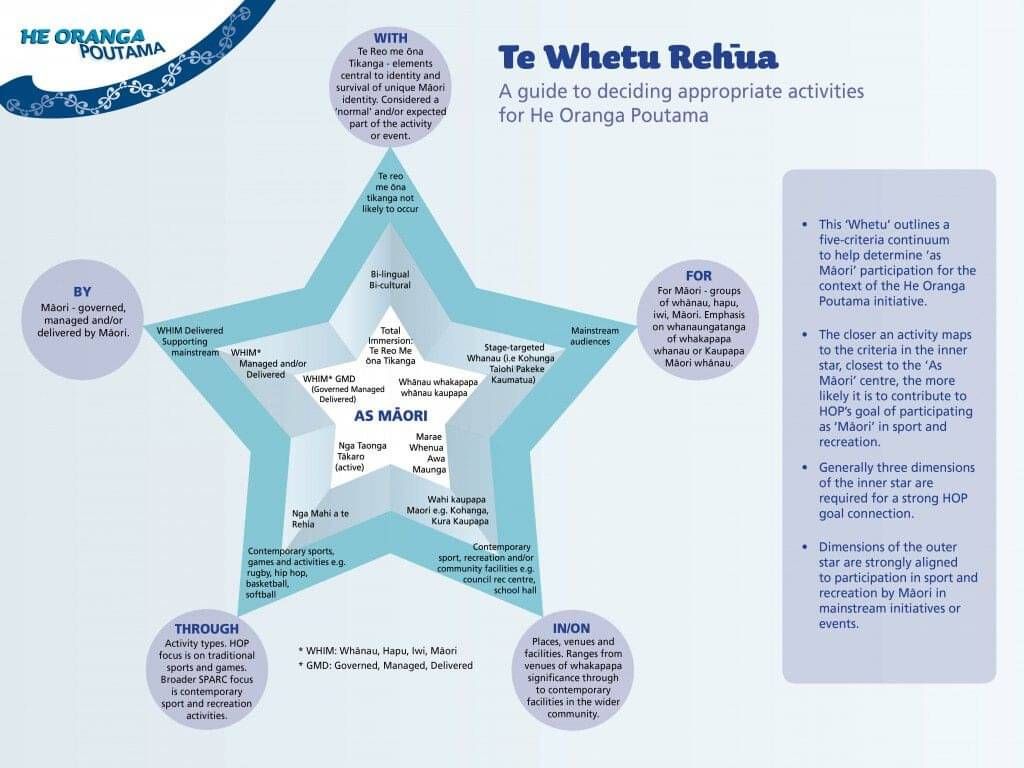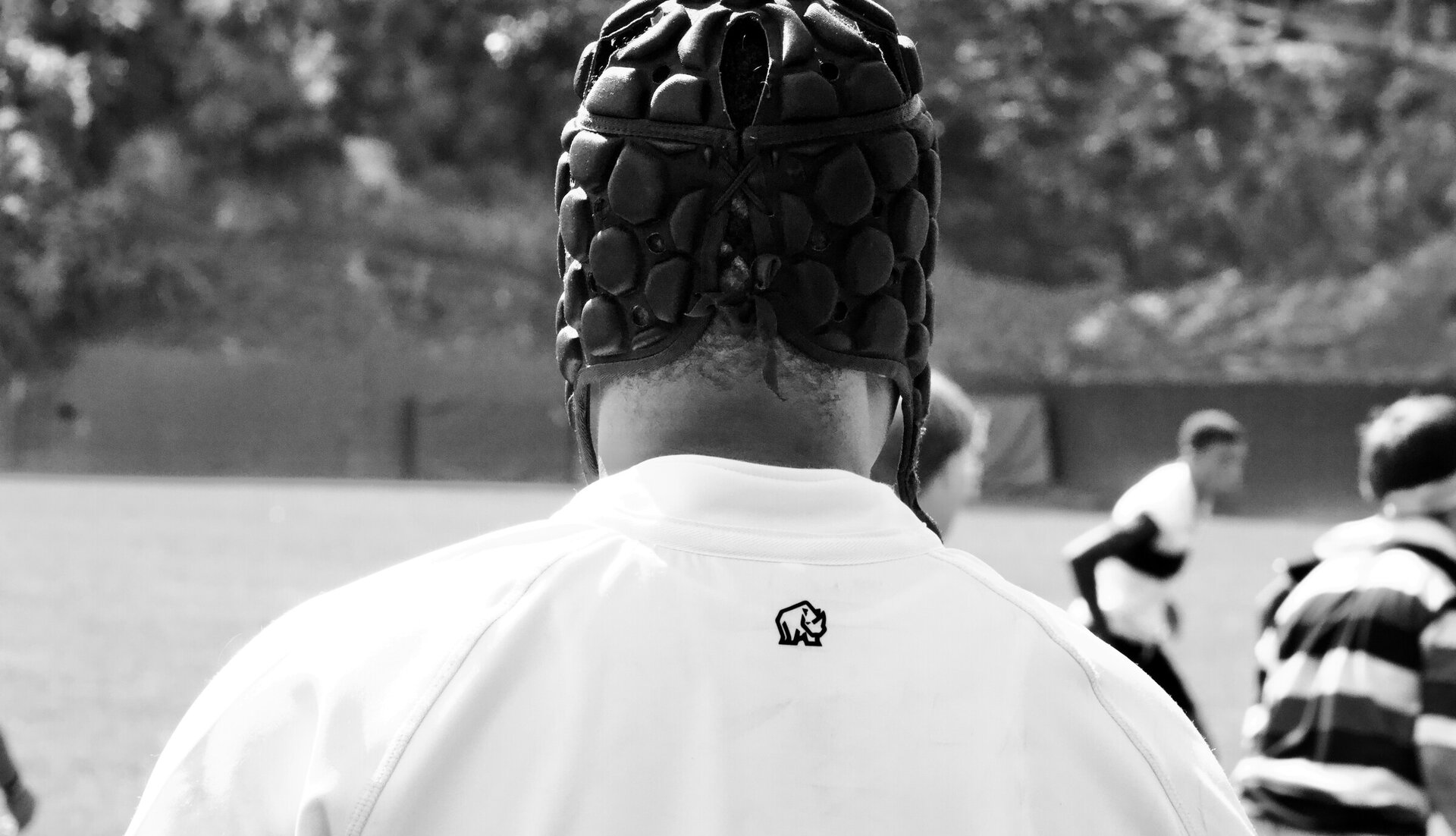What we have learned reports on a three-year developmental evaluation of He Oranga Poutama.
He Oranga Poutama (HOP) is a Sport NZ initiative that supports Māori wellbeing through sport and recreation.
In 2009, the programme evolved from a focus on increasing the participation by Māori in sport, to one of participating and leading as Māori in sport and traditional physical recreation at community level. This shift in direction to an as Māori focus signalled that Sport NZ recognised the cultural distinctiveness aspect of the new programme goal and the importance of culturally distinctive pathways for sport and recreation if Māori were to participate as Māori. Sport NZ, along with other government agencies, was coming to realise that a strong and secure cultural identity for Māori helps facilitate their access to wider society, as well as being vital to overall wellbeing; and was willing, through the He Oranga Poutama initiative, to invest in and enable a stronger platform for Māori to participate 'as Māori'.
Te Whetu Rēhua: a framework for defining as Māori participation in sport and recreation
Te Whetu Rēhua is a culturally based programme and evaluation framework developed for He Oranga Poutama. Te Whetu Rēhua encapsulates a collective and shared understanding of five key Māori concepts and principles that make up what it means to participate as Māori in sport and recreation in the HOP programme context.

Once developed, Te Whetu Rēhua became the foundation on which the programme’s management, delivery, monitoring and evaluation were based. It was used by Sport NZ to guide and clarify the types of activities that providers might deliver that most closely mapped to the programme goals. It was used by providers, particularly Regional Sports Trusts, to set clear boundaries about where their efforts should/needed to be focused to meet He Oranga programme goals and outcomes. The collaborative development process supported use of the monitoring and data collection tools, participation in the evaluative capacity building activities and engagement in the evaluation.
The five key concepts and principles of the Te Whetu Rēhua are:
| Principle | Description |
| WITH Te Reo Māori me Āna Tikanga (Māori language and custom). | Māori language and culture are central to the survival and expression of unique Māori identity. The centrality of Te Reo Māori me Āna Tikanga was consistently expressed by all participants as fundamental to the revitalisation of and reproduction of what it means to live as Māori in the contemporary world. |
| BY – Governed, Managed and Delivered by Māori. | This element refers to the degree that activities are governed, managed and/or delivered by Māori at organisational level. This element supports the principles of rangatiratanga, for example, it reflects the strong desire by Māori to be self-determining, having meaningful control of their lives and cultural wellbeing |
| FOR Whānau – The concept of whānau is highly valued in te ao Māori. | Participating as Māori in modern times links to both traditional whakapapa (genealogical) whānau (whānau, hapū, iwi, waka) and more recent Kaupapa Māori whānau collectives (eg. kohanga reo, Aotea Māori netball). The principle of whanaungatanga is affirmed through this element. |
| THROUGH – Doing activities/sports/games that have whakapapa to Māori origins (e.g., ki-o-rahi, mau rakau etc). | HOP places an emphasis on the revitalisation of traditional sports and games, however it is also inclusive of contemporary sport and recreation activities. |
| IN/ON places with culturally significant histories or connection to Māori (e.g. awa, maunga, marae, whenua). | Places and/or venues of whakapapa significance are associated with as Māori participation for culturally centred reasons. They provide access to possibilities of enhancing cultural identity. |
See this video which explains the Guiding Star
This project won the Australasian Evaluation Society’s 2013 Best Evaluation Policy and Systems Award
Insert photo of winners
Photo credit: Jenny Neale
It continues to be used by Sport NZ.
An exemplar was written about this project: for further information please see:
Wehipeihana, N., McKegg, K., Thompson, V., & Pipi, K. (2015). Cultural responsiveness through developmental evaluation: Indigenous innovations in sport and traditional Māori recreation. In Patton, M.Q., McKegg, K., & Wehipeihana, N. (Eds.), Developmental evaluation exemplars: Principles in practice (pp. 25–44). New York: Guilford Press.


